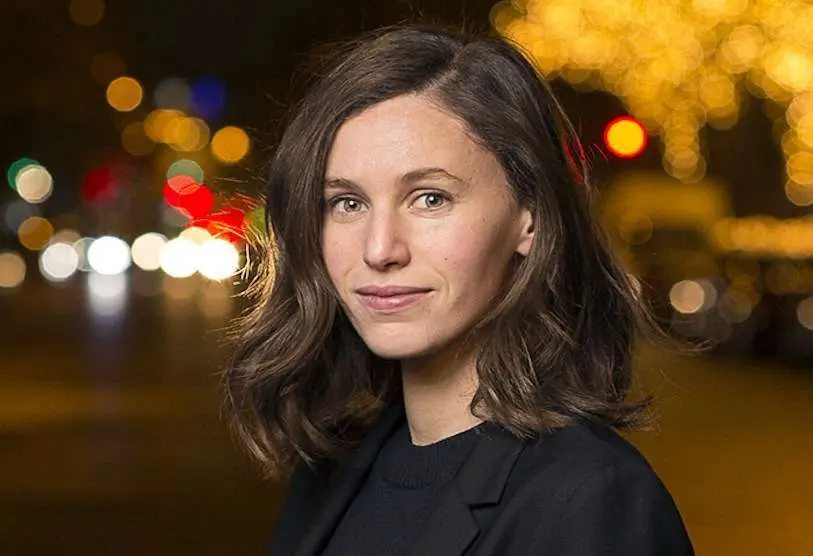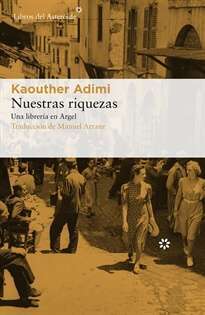Algeria through literature

The above and the following arise from the novel "Nuestras riquezas", by the Algerian Kaouther Adimi, published in Spain by Libros del Asteroide in 2018, translated by Manuel Arranz, originally in French a year earlier. The author takes us on a journey to a bookshop in Algiers, from the 1930s to the present, and raises questions.
Literature - Is literature the best way to get to know other cultures? Do the novels of Juan José Millás reflect present-day Spain? Is the aim of a writer artistic or didactic? The reality of Arab societies is generally so intense that it seeps into fiction, although we should probably not ask the novelist to specialise in social, historical or sociological sciences, beyond a certain rigour in his references, the absence of which could call into question the story. Let us enjoy reading fiction, and let us pull the real threads with other disciplines.
Settlers - No two colonial experiences are the same, imposed or suffered, none of them exemplary, and it is often forgotten that past and present colonialism has a fundamental actor in the form of the settlers, up to a million in Algeria, more than a tenth of the population, most of whom left with independence in 1962. The settler is part of a system of institutionalised racism, for which he or she may not be responsible but is often a humble beneficiary. The poor economic profitability of certain colonies for the metropole, such as Algeria or Morocco, is sometimes pointed out, as if greater economic efficiency would have better justified occupation and repression. All colonialisms have fuelled violence plus militarism, and reactionary contestation in the metropole, in France for example behind two coups d'état in 1958 and 1961, linked to Algeria.

One may wonder whether an independent Algeria was ever possible, with that million settlers included, not under apartheid, but as part of a new independent state, all together in a country governed by the laws of electoral majorities; probably violence prevented such a solution, which in other geographies such as Palestine has already become the only option, the alternative being ethnic cleansing.
Adimi's novel reflects in its past references to the Algeria of the colonists, the only ones to enjoy French nationality, which excluded Arabs, indigenous people, Muslims, and included Christians and Jews. In a way, Adimi, born twenty years after independence, can appropriate a cultural tradition that non-French Algerians contemporary to colonisation have not felt as their own. In the novels of Camus or the Tangier-born Ángel Vázquez, the Arabs have no name, they are part of the landscape.
Spaniards in Algeria - The relationship between what is now Spain and Algeria is intense, ancient and unknown, and includes Cervantes held captive in Algiers, Camus' Minorcan mother (Catalina Elena Sintes), Lole Montoya's grandmother (Antonia La Negra, from Oran), Republican exiles, leftist military (some fell there in the seventies), economic immigration for centuries, occupation by the Spanish crown of Oran from 1509 to 1792 (Cisneros, cardinal, inquisitor, regent, went from Toledo to Granada and then to Oran in his own campaign as a conqueror); The Saharan Villa Cisneros, now called Dakhla, pays homage to the man named Captain General of Africa by Ferdinand the Catholic). Spain and Algeria are also linked by two underground gas pipelines, and that unites a lot; although it should also be acknowledged that energy and security issues bring some people, companies and governments closer together, but less so between citizens.
Mediterranean - From Serrat to Camus, there is a Mediterranean myth. Many Arabs know Spain through Barcelona, Alicante has a ferry with Algeria. There are political initiatives between the two shores that fail to weave a network that does exist in regular and irregular labour, sentimentally and culturally.
Identity - Algeria cannot be understood without colonialism (no Arab country, nor France), any more than the US without slavery or Spain without the Civil War, and anyone wishing to approach these countries has to study these phenomenal phenomena, without coming to categorical conclusions, but the approach does shed some light on the scenario.
From possibly opposing camps, colonialism being one of them, it is claimed that Algeria is a French creation, there is no prior Algerian identity, and it is sometimes questioned whether there is even a subsequent one.
Identity is multiple and changing, and as a general rule, Algerian identity is therefore not immutable, one can never say it does not exist. If we refer to national identity, it obviously exists today, but two centuries ago in North Africa it was different, as it was in Spain, with many subjects and few citizens.

Let us recognise that Algeria has a pending transition, the national political references are linked to the war of independence (with an expiry date, that of those who lived through it), where those who do not have it through votes seek their legitimacy (another way is religion) and those who seek the purity of the early days, which does not question the Algerian identity, today with 130 years of colonialism behind it, a violent eight-year process of independence, the revolutionary and non-aligned myth of the 1960s and 1970s, the repression of a particular spring in the late 1980s, a civil war in the 1990s and half of the current population under the age of 25 - all of this is identity, including the hirak, as the popular protest movements that have emerged since February 2019 and forced Bouteflika out of office after two decades at the helm of the country are called.
In contrast to colonial illiteracy, the majority literacy in Arabic and French, total bilingualism, will also have some influence on Algeria's current identity. Spanish is as American today as French is North African.
All of the above appears on reading the novel by the Algerian Adimi, and also arises thanks to the work of cultural promotion carried out by Silvia Rubio and Maribel González from Separata Árabe, a website and reading club, who recently organised a digital meeting on the novel by Kaouther Adimi with the energy policy specialist Aurelia Mañé; thanks to the four women in this paragraph, Algeria is closer to us today, because we understand it better.










